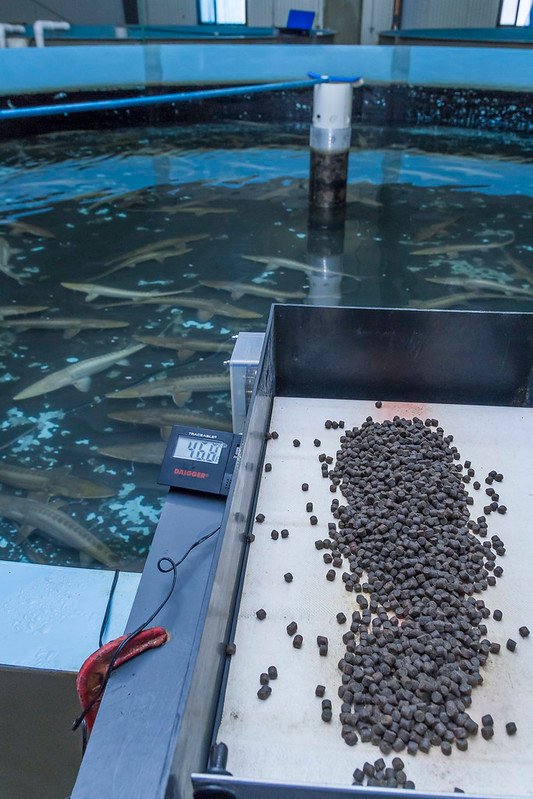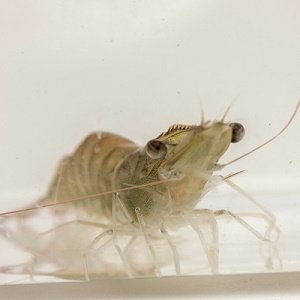
While overfeeding in aquaculture can reduce feed efficiency and raise bacterial loads, there have been few investigations into its effects on fish health.
A team of scientists from Pukyong National University, Pusan National University, and the Korean Aquatic Organism Disease Inspector Association explored an often-overlooked aspect of aquaculture: the impact of overfeeding on fish health and its potential consequences.
The study aimed to understand the physiological changes associated with overfeeding in Rainbow trout and whether such feeding practices increase vulnerability to infections.
The Overfeeding Study
In the study, 105 rainbow trout, with an average weight of 49.26 ± 2.78 g, were divided into three groups: normal feeding, intermediate feeding, and overfeeding. These groups received approximately 1.7%, 2.55%, and 3.58% of their body weight per day, respectively, for eight weeks.
Physiological Changes Induced by Overfeeding
The results of the study revealed some surprising physiological changes in the overfed fish.
The overfed fish exhibited a significantly higher hepatosomatic index, body mass index, and serum triglyceride values compared to their normally-fed counterparts. These observations confirmed the successful induction of obesity in overfed fish.
Furthermore, serum analysis showed elevated concentrations of succinate, valine, and isoleucine in overfed fish. These metabolites are known to be associated with obesity, emphasizing the impact of overfeeding on the fish’s metabolic profile.
Effects on Liver Function
Liver function was also affected by overfeeding. Overfed fish consistently displayed higher levels of alanine aminotransferase (ALT) and aspartate transaminase (AST), which are indicators of liver function.
This suggests that overfeeding can have detrimental effects on the liver, and these enzymes can serve as early indicators of issues related to overfeeding.
Stay Always Informed
Join our communities to instantly receive the most important news, reports, and analysis from the aquaculture industry.
Vulnerability to Infections
Perhaps the most concerning finding of the study was the increased vulnerability of overfed fish to infections.
When challenged with Aeromonas salmonicida subsp. salmonicida, the overfed fish experienced notably higher mortality rates compared to their normally-fed and intermediate-fed counterparts.
These results could indicate that even short periods of overfeeding can compromise fish health and make them more susceptible to infections.
Conclusion
Overfeeding in aquaculture is not a benign practice. It can induce obesity in fish, lead to metabolic changes, impair liver function, and increase susceptibility to infections.
These findings underscore the importance of responsible and well-managed feeding practices in aquaculture. To achieve economic and environmental sustainability in aquaculture, it is essential to strike a balance between food management, fish health, and production efficiency. Monitoring fish health and avoiding overfeeding are crucial steps in this journey.
Contact
Do-Hyung Kim
Department of Aquatic Life Medicine, Pukyong National University
Busan, Republic of Korea
Email: dhkim@pknu.ac.kr
Reference
Jiyeon Park, HyeongJin Roh, Junewoo Park, Yoonhang Lee, Ju-Yeop Lee, Dahye Jeong, Seonghye Kim, Mu Kun Lee, Suhkmann Kim, Do-Hyung Kim. 2023. Overfeeding-induced obesity in rainbow trout (Oncorhynchus mykiss) linked to higher susceptibility to infection, Aquaculture, 2023, 740296, ISSN 0044-8486,
https://doi.org/10.1016/j.aquaculture.2023.740296.
Editor at the digital magazine AquaHoy. He holds a degree in Aquaculture Biology from the National University of Santa (UNS) and a Master’s degree in Science and Innovation Management from the Polytechnic University of Valencia, with postgraduate diplomas in Business Innovation and Innovation Management. He possesses extensive experience in the aquaculture and fisheries sector, having led the Fisheries Innovation Unit of the National Program for Innovation in Fisheries and Aquaculture (PNIPA). He has served as a senior consultant in technology watch, an innovation project formulator and advisor, and a lecturer at UNS. He is a member of the Peruvian College of Biologists and was recognized by the World Aquaculture Society (WAS) in 2016 for his contribution to aquaculture.







